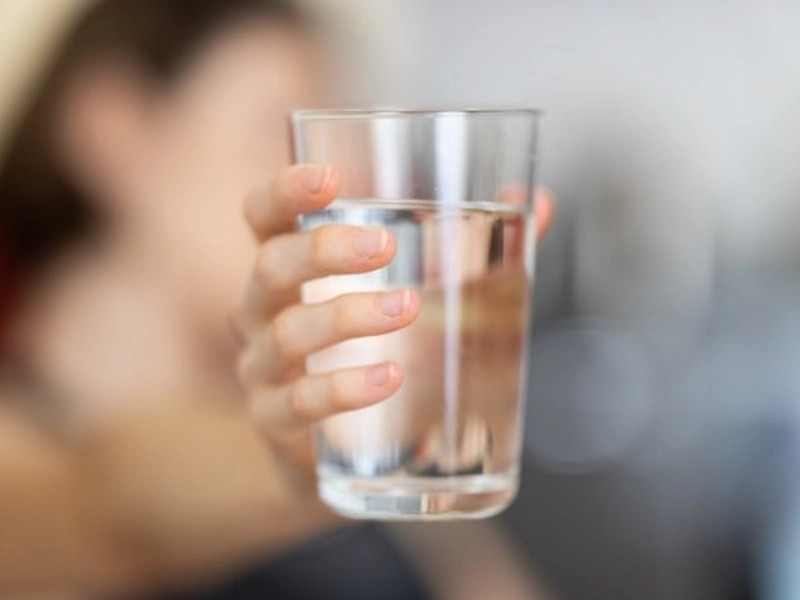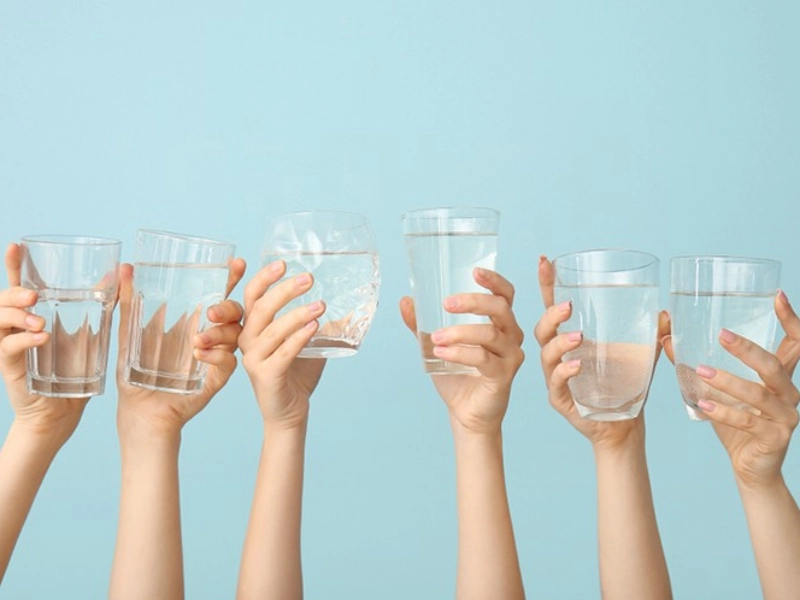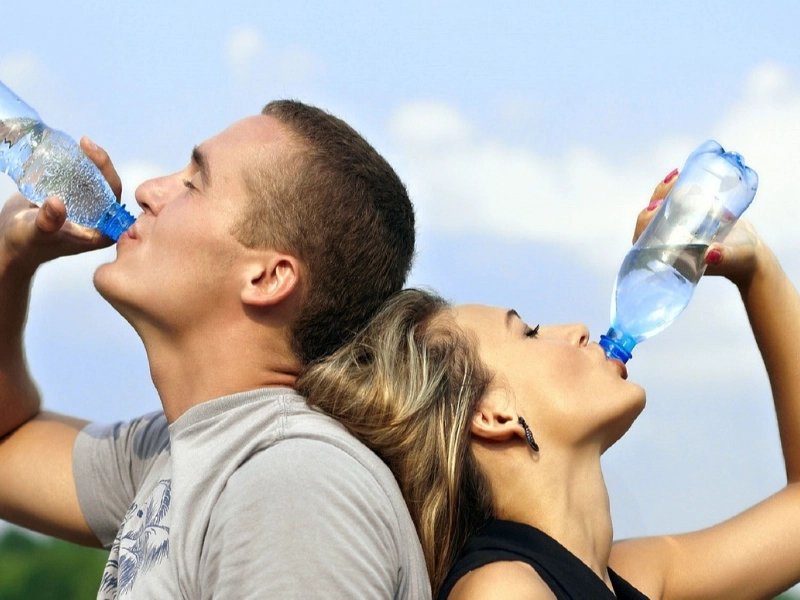Water is essential for all the body's cellular processes, as it transports nutrients, regulates body temperature and eliminates waste products. It also travels with us as we pursue our well-being. To achieve optimal hydration, we must pay attention to our body's signals. If we experience symptoms such as dark urine or dry mouth, our body needs to restore fluids.

 If you don't get enough water, osmotic pressure can cause your cells to shrink, hindering your ability to perform vital tasks. Stay hydrated throughout the day by eating a diet that includes fruits, vegetables, whole grains, low-calorie drinks, and water.
Even mild dehydration can leave you feeling weak and lethargic. Staying hydrated can help counteract the tiredness that comes with dehydration.
To stay more hydrated, add electrolytes such as sodium and potassium to your drink in addition to water. It may also be beneficial to use cues or reminders to help you remember to drink water. For example, you could set an alarm on your phone to remind you to take a sip of water. There are so many benefits to staying properly hydrated, so make sure you consume enough water every day.
If you don't get enough water, osmotic pressure can cause your cells to shrink, hindering your ability to perform vital tasks. Stay hydrated throughout the day by eating a diet that includes fruits, vegetables, whole grains, low-calorie drinks, and water.
Even mild dehydration can leave you feeling weak and lethargic. Staying hydrated can help counteract the tiredness that comes with dehydration.
To stay more hydrated, add electrolytes such as sodium and potassium to your drink in addition to water. It may also be beneficial to use cues or reminders to help you remember to drink water. For example, you could set an alarm on your phone to remind you to take a sip of water. There are so many benefits to staying properly hydrated, so make sure you consume enough water every day.
 It goes without saying that getting enough sleep is important to stay healthy, but did you also know that getting enough water in your diet can help improve the quality of your sleep?
Research shows that both insufficient sleep and dehydration can negatively impact your ability to get a restful night's sleep. Dehydration typically starts the cycle by causing nocturia, or waking up multiple times during the night for bathroom breaks.
Drinking water or other beverages before bed can help you avoid these sleep disruptions. This also makes you less likely to experience typical side-symptoms of nocturia, such as dry lips and itchy skin. This can be especially beneficial if you're taking drying medications, such as diuretics, for heart disease or high blood pressure.
It goes without saying that getting enough sleep is important to stay healthy, but did you also know that getting enough water in your diet can help improve the quality of your sleep?
Research shows that both insufficient sleep and dehydration can negatively impact your ability to get a restful night's sleep. Dehydration typically starts the cycle by causing nocturia, or waking up multiple times during the night for bathroom breaks.
Drinking water or other beverages before bed can help you avoid these sleep disruptions. This also makes you less likely to experience typical side-symptoms of nocturia, such as dry lips and itchy skin. This can be especially beneficial if you're taking drying medications, such as diuretics, for heart disease or high blood pressure.
 Water is essential for the efficient operation of every system in your body. Organs like your brain are healthy. When you are dehydrated, your energy levels and mood drop. Dehydration is associated with mood disorders like depression and anxiety because it affects hormones, neurotransmitters and brain activity. Staying hydrated
prevents or reduces mood swings and enhances brain functions like memory, focus and attention. Carry a water bottle with you at all times and use your phone to create reminders to take breaks. Sip small sips of water instead of gulping it down. Garnish your water with lemon or lime slices, cucumber, berries or apple cider vinegar for a tasty and easy way to increase your intake.
Water is essential for the efficient operation of every system in your body. Organs like your brain are healthy. When you are dehydrated, your energy levels and mood drop. Dehydration is associated with mood disorders like depression and anxiety because it affects hormones, neurotransmitters and brain activity. Staying hydrated
prevents or reduces mood swings and enhances brain functions like memory, focus and attention. Carry a water bottle with you at all times and use your phone to create reminders to take breaks. Sip small sips of water instead of gulping it down. Garnish your water with lemon or lime slices, cucumber, berries or apple cider vinegar for a tasty and easy way to increase your intake.
 Many diseases and problems can be prevented with proper hydration. Muscle cramps, disorientation, and even death due to loss of electrolytes and fluids are signs of mild dehydration.
This can be avoided by drinking water first thing in the morning, as it not only gives your body a natural energy boost. Try flavoring your water with cucumber, lemon, or mint for a nutritional boost.
On average, you should consume eight glasses of water every day. However, this may vary depending on the weather and intensity of your exercise. For example, people who lead a sedentary lifestyle require less water to stay hydrated compared to those who sweat a lot during exercise or when it is hot. In addition, you may need to drink more water because your blood sodium levels are higher than normal.
Many diseases and problems can be prevented with proper hydration. Muscle cramps, disorientation, and even death due to loss of electrolytes and fluids are signs of mild dehydration.
This can be avoided by drinking water first thing in the morning, as it not only gives your body a natural energy boost. Try flavoring your water with cucumber, lemon, or mint for a nutritional boost.
On average, you should consume eight glasses of water every day. However, this may vary depending on the weather and intensity of your exercise. For example, people who lead a sedentary lifestyle require less water to stay hydrated compared to those who sweat a lot during exercise or when it is hot. In addition, you may need to drink more water because your blood sodium levels are higher than normal.